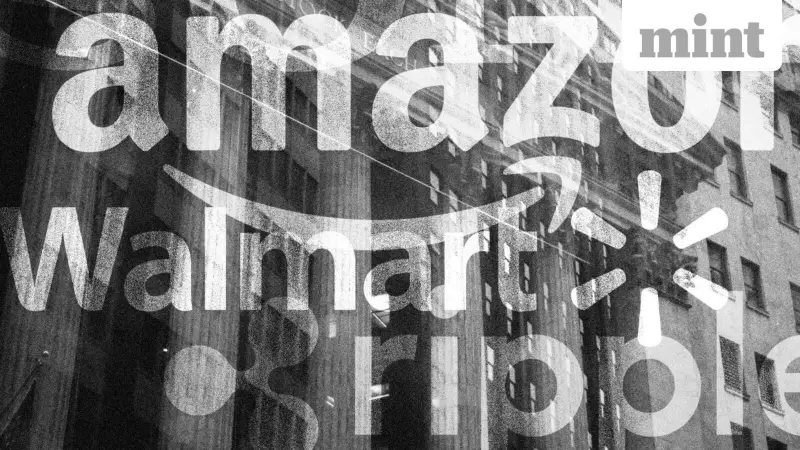
In a dramatic shift, major cryptocurrency firms, fintech companies, and even global retailers are now aggressively seeking to become banks or offer banking services. This trend, gaining momentum under the Trump administration, marks a significant evolution in the financial landscape, with potential ripple effects for markets like India.
The Rush for Trust Bank Charters
Last year, Ripple CEO Brad Garlinghouse publicly criticised traditional banks for shutting out the crypto industry. Today, his company is leading a charge in the opposite direction, formally asking US regulators for permission to start its own bank. Ripple is not alone. Cryptocurrency exchange Coinbase and UK payments firm Wise have also joined the queue, alongside Japanese commercial bank Sony Bank.
The primary vehicle for this expansion is the national trust charter. According to data from financial-services advisory firm Klaros Group, there have been 12 applications for trust charters so far this year, a number that surpasses any recorded in the preceding eight years. Unlike full-service banks, trust banks generally cannot accept deposits or make loans. Instead, they generate revenue by charging fees for safeguarding customer assets and, since they do not hold deposits, they are typically not insured by agencies like the FDIC.
A Friendly Regulatory Climate
This surge in applications is not happening in a vacuum. Trump-appointed regulators are actively encouraging these efforts, aligning with a crypto-friendly administration that has stated its goal to remove barriers to new payment systems. Comptroller of the Currency Jonathan Gould, whose agency regulates nationally-chartered US banks, expressed this sentiment at a conference last month, stating, "My view is that it’s better for it to be done within the banking system, if it’s legally permissible and can be done in a safe and sound manner."
This welcoming stance represents a notable departure from the post-2008 financial crisis era, where regulators were highly restrictive about who could launch a bank and what activities they could undertake.
Opposition and Systemic Risks
Unsurprisingly, the traditional banking lobby is pushing back hard. Powerful groups like the Bank Policy Institute (BPI) and the Independent Community Bankers of America have sent letters urging the Office of the Comptroller of the Currency (OCC) to reject applications from Ripple, Wise, and Sony. Their core argument is that these companies want to compete for bank customers without shouldering the same level of regulatory oversight, particularly the stringent capital requirements that ensure financial stability.
The BPI specifically warned that approving Coinbase's application "could significantly increase risks to the U.S. financial system." However, Coinbase's chief policy officer, Faryar Shirzad, dismissed these concerns, characterising them as a transparent attempt by banks to protect their business interests from new competitors.
The Stablecoin Connection and Retail Ambitions
The battle over bank charters is deeply intertwined with the rise of stablecoins—cryptocurrencies designed to maintain a fixed value, often pegged to a fiat currency like the US dollar. The companies seeking charters, including Ripple, state that they plan to provide fiduciary services for digital assets and issue stablecoins.
This prospect alarms traditional banks. If stablecoins gain widespread consumer adoption, major retailers like Amazon and Walmart could use them to create their own payment methods or other banking services, potentially cutting out banks and credit-card companies entirely. The Wall Street Journal had previously reported that these and other large companies were exploring issuing their own stablecoins.
The regulatory landscape for this was partly clarified when President Trump signed the Genius Act, a bill that tasks the OCC with approving and overseeing US stablecoin issuers. While the act does not mandate a bank charter for stablecoin issuance, it requires issuers to be financial firms in most cases, which could lead to new partnerships in the sector.
Beyond stablecoins, another pathway is opening up. The Federal Deposit Insurance Corp. (FDIC) has indicated it will revisit its stance on industrial loan charters, state-granted charters that have been used in the past by companies like Toyota to help customers finance purchases. A potential expansion of these charters could further blur the lines between commerce and banking.
For a country like India, with its own booming fintech and digital payments ecosystem, these developments in the US offer a critical case study on the convergence of technology, commerce, and finance, and the regulatory challenges that inevitably follow.






